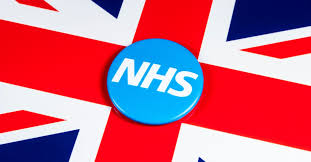The National Health Service (NHS) – A Pillar of Healthcare in the UK
The National Health Service (NHS) is the publicly funded healthcare system in the United Kingdom, providing comprehensive medical care to residents free at the point of use. Established in 1948, the NHS is one of the largest and oldest single-payer healthcare systems in the world.
With a mission to provide high-quality care for all, regardless of their ability to pay, the NHS plays a vital role in ensuring that everyone has access to healthcare services when they need them. From general practitioners and hospitals to mental health services and emergency care, the NHS offers a wide range of medical services to meet the diverse needs of the population.
One of the key principles of the NHS is that it is based on clinical need, not ability to pay. This means that patients are treated based on their medical condition rather than their financial status. The NHS strives to deliver equitable and fair healthcare services to all, promoting health and well-being across communities.
Over the years, the NHS has faced various challenges, including rising demand for services, funding constraints, and workforce shortages. Despite these challenges, the NHS continues to be a cornerstone of healthcare in the UK, providing essential care to millions of people every day.
As we look towards the future, it is clear that the NHS will play an increasingly important role in meeting the evolving healthcare needs of society. With ongoing reforms and investments, the NHS is committed to delivering high-quality care that is efficient, effective, and patient-centred.
In conclusion, the National Health Service (NHS) stands as a symbol of compassion, dedication, and excellence in healthcare. It embodies the values of universal access to care and social solidarity, making it a fundamental pillar of health provision in the UK.
Understanding the National Health Service: Key Questions Answered
- What is the purpose of National Health Service?
- What are the 3 NHS services?
- What does the NHS do?
- What is covered by NHS?
What is the purpose of National Health Service?
The purpose of the National Health Service (NHS) in the UK is to provide high-quality healthcare services that are accessible to all residents, regardless of their financial circumstances. Established on the principle of universal healthcare, the NHS aims to ensure that every individual receives the medical care they need when they need it, without facing financial barriers. By offering a comprehensive range of services, from primary care to specialist treatments, the NHS strives to promote health and well-being across the population and address health inequalities. Overall, the core purpose of the NHS is to safeguard and improve the health of the nation, reflecting a commitment to public welfare and social justice.
What are the 3 NHS services?
The National Health Service (NHS) in the UK comprises three main services: primary care, hospital care, and community care. Primary care is often the first point of contact for patients and includes services provided by general practitioners (GPs), nurses, and other healthcare professionals in local clinics and GP practices. Hospital care encompasses a wide range of specialist medical services delivered in hospitals, including emergency care, surgery, and diagnostic tests. Community care involves services that support patients outside of hospital settings, such as mental health services, district nursing, and social care. Together, these three NHS services work collaboratively to provide comprehensive healthcare to individuals across the UK.
What does the NHS do?
The National Health Service (NHS) plays a crucial role in providing a wide range of healthcare services to the residents of the United Kingdom. From primary care services offered by general practitioners to specialized treatments provided by hospitals, the NHS aims to meet the diverse healthcare needs of the population. The NHS not only offers medical treatment but also focuses on promoting public health, preventing diseases, and improving overall well-being. With its commitment to delivering high-quality, accessible care free at the point of use, the NHS stands as a cornerstone of healthcare provision in the UK, ensuring that everyone has access to essential medical services when they need them.
What is covered by NHS?
The National Health Service (NHS) in the UK covers a wide range of healthcare services, including consultations with general practitioners, specialist referrals, hospital treatments, emergency care, mental health services, and maternity care. Prescription medications, diagnostic tests, and rehabilitation services are also included in the coverage provided by the NHS. Additionally, certain preventive services such as vaccinations and screenings are available to help maintain and improve the health of the population. The NHS aims to ensure that essential healthcare needs are met for all residents, regardless of their financial circumstances, reflecting its commitment to universal access and equitable care.

Leave a Reply